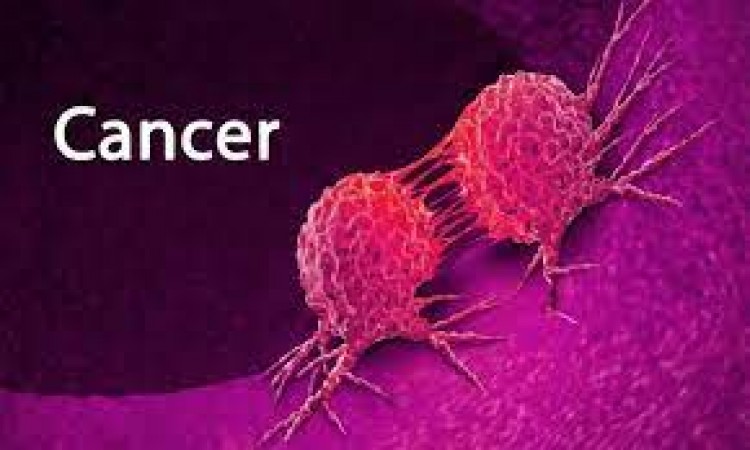
Cancer affects millions of people worldwide, and if not diagnosed and treated early, it can become life-threatening. Early detection of cancer significantly increases the chances of successful treatment and saving a person's life. Therefore, regular medical check-ups and screenings are crucial. Additionally, there are certain factors that can help in the early detection of cancer. Awareness of these factors can aid in the timely detection of cancer.
Here are seven crucial points emphasized by experts for early cancer detection:
Learn about your family history:
Understanding your family's cancer history can provide essential insights into your own risk factors. Take the time to gather information about any instances of cancer in your family, including the type of cancer, age at diagnosis, and any known genetic predispositions. Discuss this information with your healthcare provider, as they can assess your risk and suggest appropriate screening measures. They may recommend genetic testing for specific hereditary cancer syndromes, enabling you to make informed decisions about your health.
Undergo regular health check-ups:
Regular health check-ups serve as a proactive measure in identifying any potential health issues, including cancer, at an early stage. These comprehensive examinations usually include a thorough physical assessment, blood tests, and various diagnostic screenings based on your age, gender, and individual risk factors. These routine check-ups also enable your healthcare provider to establish baseline health parameters, allowing them to monitor any changes over time effectively.
Perform self-body check-ups:
Self-awareness and vigilance regarding your body's changes are crucial in early cancer detection. Regularly perform self-examinations, such as checking for any new lumps or bumps, changes in the skin, persistent pain, unexplained weight loss, or abnormal bleeding. Conduct regular breast self-exams for women and testicular self-exams for men. Additionally, be mindful of any changes in bowel habits, urinary patterns, or other bodily functions. If you notice any abnormalities or persistent symptoms, promptly consult your healthcare provider for further evaluation.
Focus on lifestyle choices:
Emphasizing a healthy lifestyle can significantly reduce the risk of developing various types of cancer. Opt for a balanced diet rich in fruits, vegetables, whole grains, and lean proteins while limiting processed foods and sugary beverages. Engage in regular physical activity, aiming for at least 150 minutes of moderate-intensity exercise each week. Minimize or eliminate tobacco and alcohol consumption, as these habits are strongly linked to several types of cancer. Prioritize adequate sleep, manage stress effectively, and maintain a healthy body weight, as these factors collectively contribute to a lowered risk of cancer development.
Learn about testing guidelines:
Familiarize yourself with the recommended cancer screening guidelines corresponding to your age, gender, and specific risk factors. Different types of cancer require distinct screening approaches, such as mammograms for breast cancer, colonoscopies for colorectal cancer, Pap smears for cervical cancer, and PSA tests for prostate cancer. Stay informed about the appropriate timing and frequency of these screenings, as adherence to these guidelines is critical in early cancer detection and subsequent treatment.
Listen to your inner voice:
Your intuition can often serve as a valuable guide in recognizing potential health concerns, including cancer. Be attuned to any persistent or unexplained symptoms that seem out of the ordinary. Trust your instincts and promptly consult your healthcare provider if you have any concerns. Be open and transparent with your provider, providing comprehensive information about your symptoms, concerns, and any changes you've observed in your body. Effective communication is key in ensuring timely and accurate diagnosis and treatment.
Collaborate with supportive communities and promote awareness:
Actively participating in cancer support groups and community initiatives can foster a sense of empowerment and solidarity. Engage in discussions and awareness campaigns focused on cancer prevention, early detection, and treatment. These platforms offer valuable resources, shared experiences, and emotional support, thereby encouraging individuals to prioritize their health and engage in regular cancer screenings. By advocating for cancer awareness and education, you contribute to the overall well-being and proactive healthcare management of yourself and your community.
Early detection of cancer is crucial for successful treatment and saving lives. By understanding your family history, undergoing regular health check-ups, performing self-body check-ups, maintaining a healthy lifestyle, following testing guidelines, listening to your intuition, and participating in cancer awareness campaigns, you can contribute to the early detection of cancer and its successful treatment. Prioritizing these factors for yourself and your loved ones is essential for safeguarding your health.
MK Stalin Launches Signature Campaign in Tamil Nadu Against NEET Exam